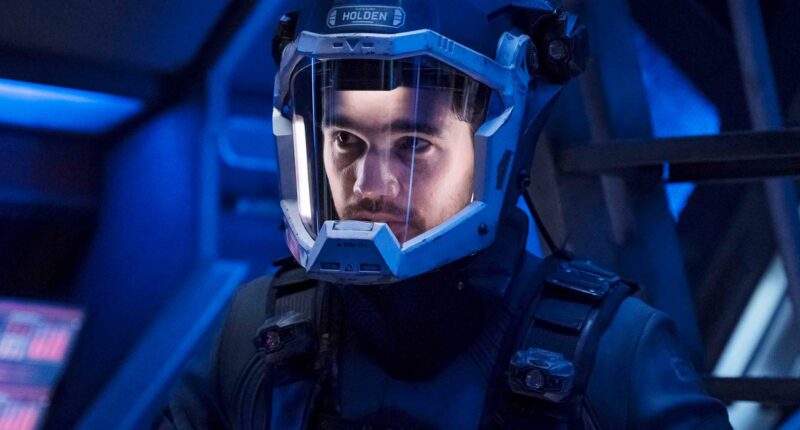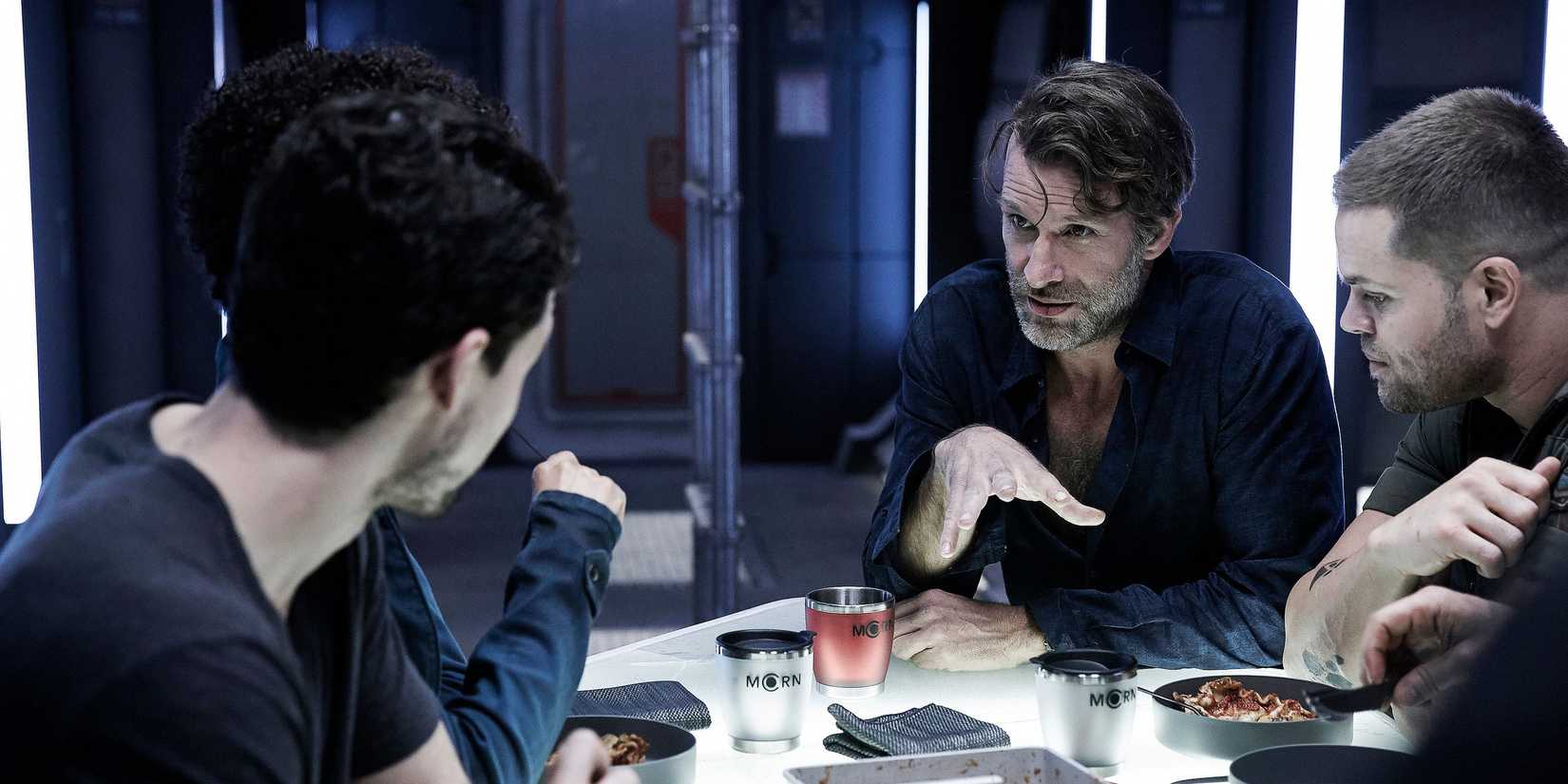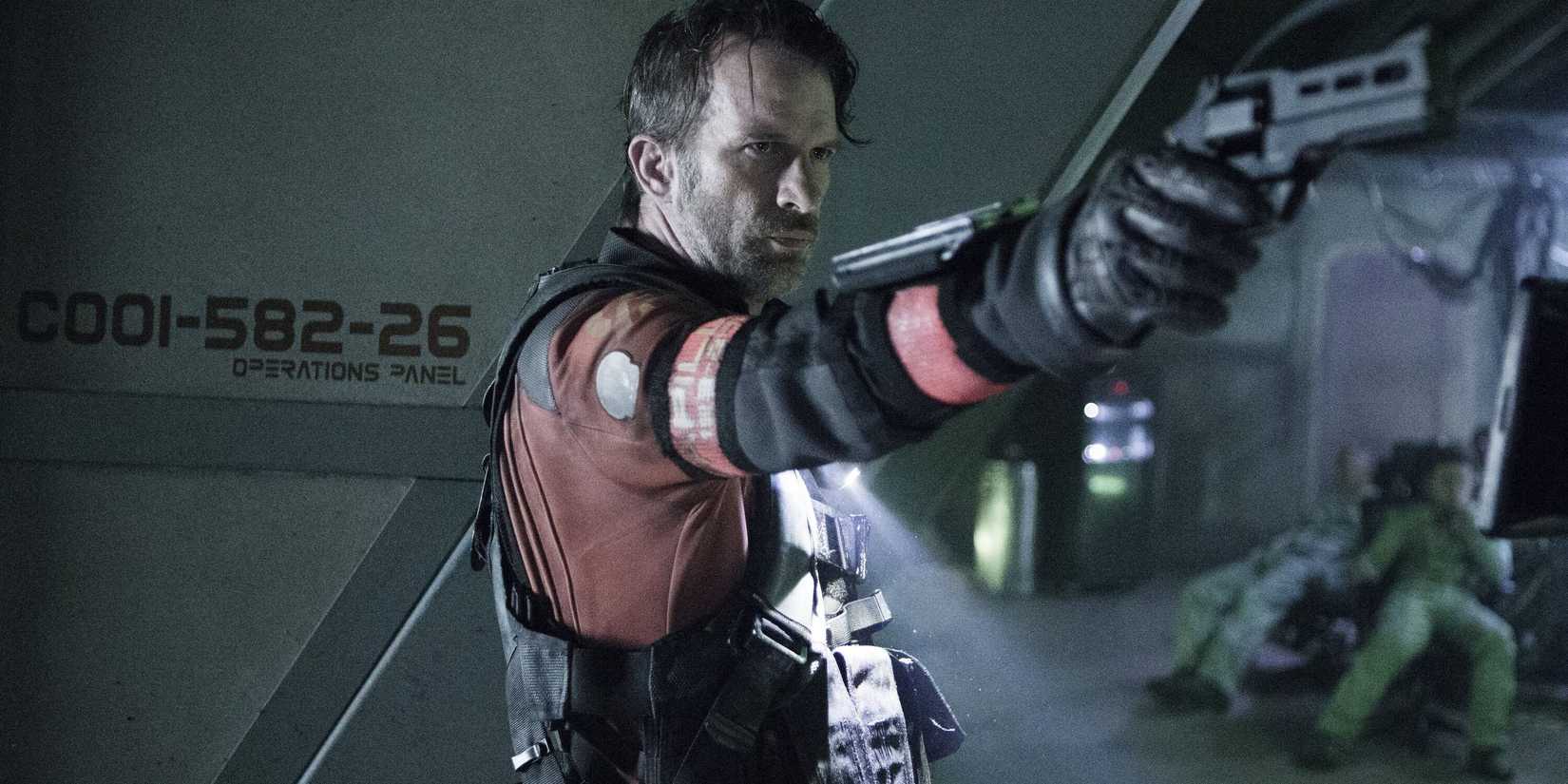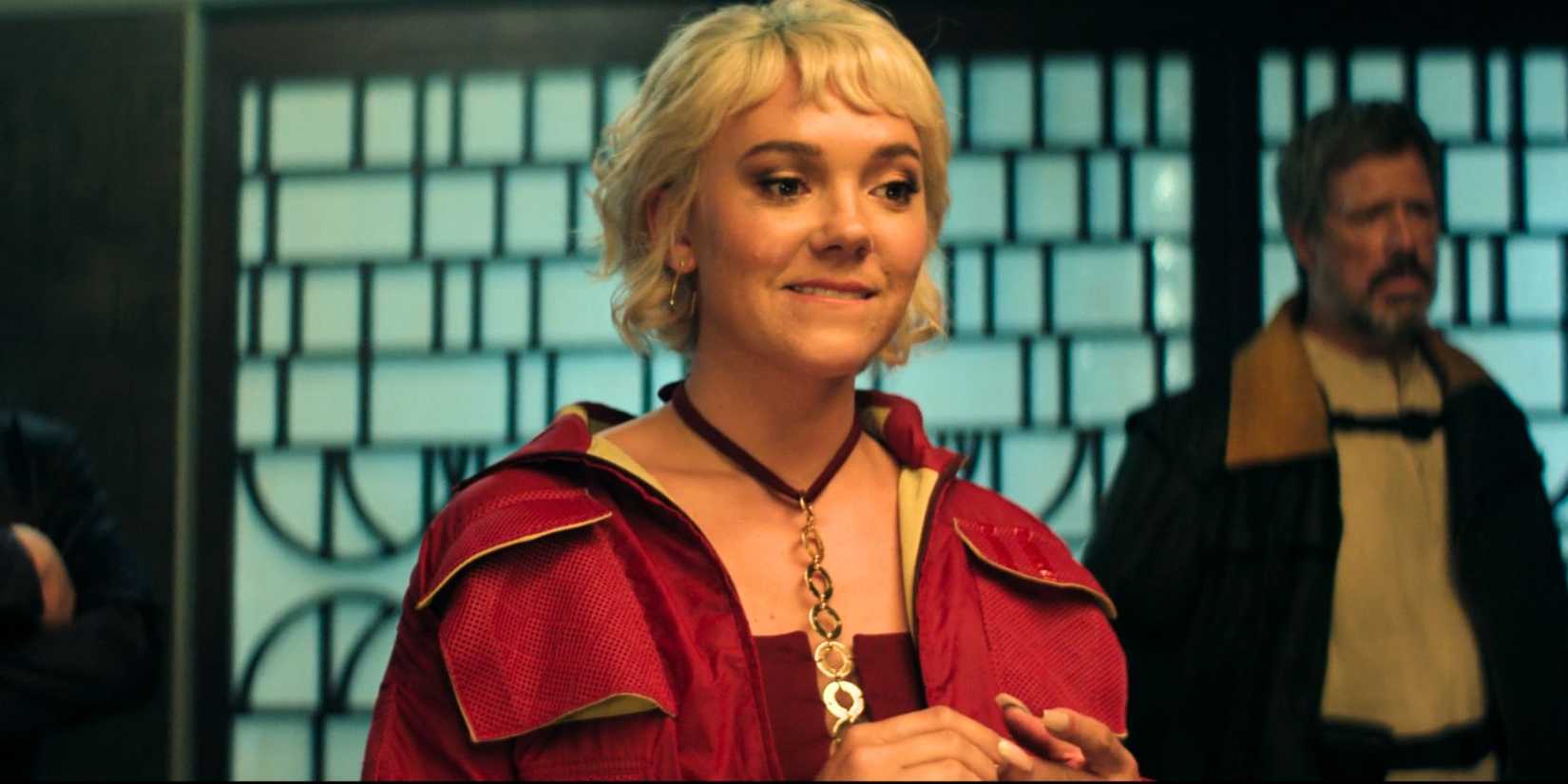When The Expanse arrived in 2015, it instantly set a new benchmark for sci-fi TV shows. Over its six-season run, The Expanse became a revelation – a polished, ambitious, and gripping depiction of humanity’s future among the stars. It took everything great about classic small-screen science fiction and reimagined it for the prestige-TV era, proving that cerebral storytelling could still thrill.
Yet, four years after its finale, the impact of The Expanse on small-screen sci-fi has curiously yet to be felt. Despite its devoted fanbase and its reputation as one of the best sci-fi series ever made, there’s an unsettling void where its successors should be. The genre has moved forward technologically, but creatively, it feels like it’s still in orbit around The Expanse.
In hindsight, The Expanse seems to have represented a peak, a rare alignment of vision, execution, and authenticity that other shows haven’t matched. However, that realization sparks a question that’s hard to shake: if The Expanse was the height of modern sci-fi TV, why hasn’t anything risen to meet it since?
The Expanse’s Final Season Closed A Big Chapter In Sci-Fi Television’s History
The Ambitious Space Opera Redefined The Genre
When The Expanse premiered in 2015, few expected it to become the best 21st-century sci-fi TV show. Adapted from James S. A. Corey’s novels, what began as a grounded space mystery and evolved into an epic exploration of politics, war, and survival across the solar system. It wasn’t just another show – it was a defining moment for modern science fiction.
The Expanse’s journey from ambitious project to once-in-a-generation entertainment wasn’t smooth, either. After its cancellation by Syfy in 2018, fans rallied to save it, and Amazon Prime Video answered the call.
This rescue alone reflected how The Expanse had transcended typical network sci-fi, inspiring the kind of dedication usually reserved for pop culture juggernauts. When the final episode, season 6’s “Babylon’s Ashes,” aired, it wasn’t just closing a story – it was closing a chapter in television history.
Unlike Star Trek or Star Wars, The Expanse didn’t rely on nostalgia or spectacle. It was intricate but accessible, scientifically plausible yet emotionally rich. Characters like James Holden (Steven Strait), Naomi Nagata (Dominique Tipper), and Amos Burton (Wes Chatham) were complex and deeply human, grounding the show’s massive scale in personal stakes.
Its depiction of interplanetary politics and moral ambiguity made it feel closer to Game of Thrones than any traditional space opera. The show’s commitment to realism – from the physics of zero-gravity combat to the sociopolitical tensions between Earth, Mars, and the Belt – set it apart. It made the future tangible, not fantastical.
That balance of spectacle and substance made The Expanse a blueprint for how the genre should evolve. When the credits rolled on the finale episode, it felt like the end of an era. The Expanse had shown what science fiction could be in the streaming age: ambitious, intelligent, and deeply human.
Why There Might Never Be Another Sci-Fi Show Like The Expanse
Success Through Rejecting Modern Prestige TV Tropes
The Expanse didn’t just look different to other sci-fi shows of the 2010s and 2020s, it was different. It avoided nearly every pitfall that defines modern streaming-era television. In a landscape where prestige shows often blur the line between cinematic and bloated, The Expanse respected the rhythm of television storytelling.
The reasons the show is so good are also, sadly, why many argue that The Expanse couldn’t exist in today’s streaming climate. Networks now prioritize easily bingeable content – the “one long movie cut into chapters” format. The Expanse refused that.
While it had an intricate overarching narrative, each episode was self-contained enough to feel satisfying on its own. It embraced serialization without losing its episodic heartbeat. Most refreshing of all, The Expanse also avoided the cheap tricks of modern prestige TV.
There were no unnecessary shock deaths or gimmicky cliffhangers to chase social media buzz. Instead, the tension in all 6 seasons of The Expanse came from character dynamics, political intrigue, and the moral consequences of choice. It was confident enough to let quiet moments carry as much weight as explosive battles.
Unlike many contemporary sci-fi shows, The Expanse also trusted its audience. It never over-explained its worldbuilding or simplified its politics. It asked viewers to engage – to think – and rewarded them for doing so. That’s something streaming-era storytelling, obsessed with instant gratification, often fails to achieve.
Sadly, The Expanse’s approach hasn’t become the template for new shows. Instead, many big-budget sci-fi projects seem more concerned with algorithms than artistry. They prioritize bingeability over depth and visual spectacle over narrative substance. The Expanse proved that balance was possible, that complexity could coexist with accessibility.
In today’s entertainment landscape, that balance feels increasingly rare. Which is why, even years later, The Expanse still feels like lightning in a bottle – a series that mastered modern sci-fi TV in ways no one has yet replicated.
Only One Current Sci-Fi Show Is Matching What The Expanse Was Doing
Foundation Is The Closest Thing To The Expanse’s Spiritual Successor
If there’s one series that carries the torch for the spirit of The Expanse, it’s Apple TV+’s Foundation. Like The Expanse, Foundation balances massive scale with grounded storytelling. Its galaxy-spanning politics and philosophical questions echo the same ambition that made The Expanse so compelling.
Based on Isaac Asimov’s iconic novels and debuting in 2021, Foundation explores humanity’s attempt to preserve knowledge as a galactic empire crumbles. It shares The Expanse’ fascination with systems – how societies rise, fall, and adapt. However, it also shares its emotional depth, through characters like Hari Seldon (Jared Harris) and Gaal Dornick (Lou Llobell), who mirror The Expanse’s mix of intellect and empathy.
Both shows demand patience and reward it. They’re methodical, unafraid to tackle existential questions, and visually stunning without relying on empty spectacle. While Foundation is more mythic and abstract than The Expanse, its confidence in serialized storytelling and thematic depth feels like a spiritual continuation of what The Expanse achieved.
What Are The Best Sci-Fi Shows On TV Right Now?
The Expanse’s Legacy Lives On, But Mostly Thanks To Apple TV+
Right now, it’s a strange time for fans of The Expanse’s style of sci-fi storytelling. There’s no shortage of science-fiction series, but few embody the scale, realism, and emotional intelligence of The Expanse. The genre hasn’t gone anywhere – it’s just scattered.
Apple TV+ has become the new stronghold for prestige sci-fi. Alongside Foundation, shows like For All Mankind and Silo carry The Expanse’s DNA. For All Mankind explores alternate-history space exploration with grounded realism, while Silo uses dystopian mystery to explore human resilience. Each proves that complex, world-building-driven sci-fi can still thrive.
Outside Apple, however, it’s slim pickings. Netflix leans toward spectacle with shows like 3 Body Problem, while Amazon has shifted the focus of its sci-fi to more franchise-heavy content such as The Boys and Fallout. None truly capture the spacefaring realism or complex interstellar politics that made The Expanse special.
Still, hope remains. The legacy of The Expanse continues to shape expectations for what sci-fi television can be. Its shadow looms large – and if the next wave of creators are paying attention, the genre might just peak again.
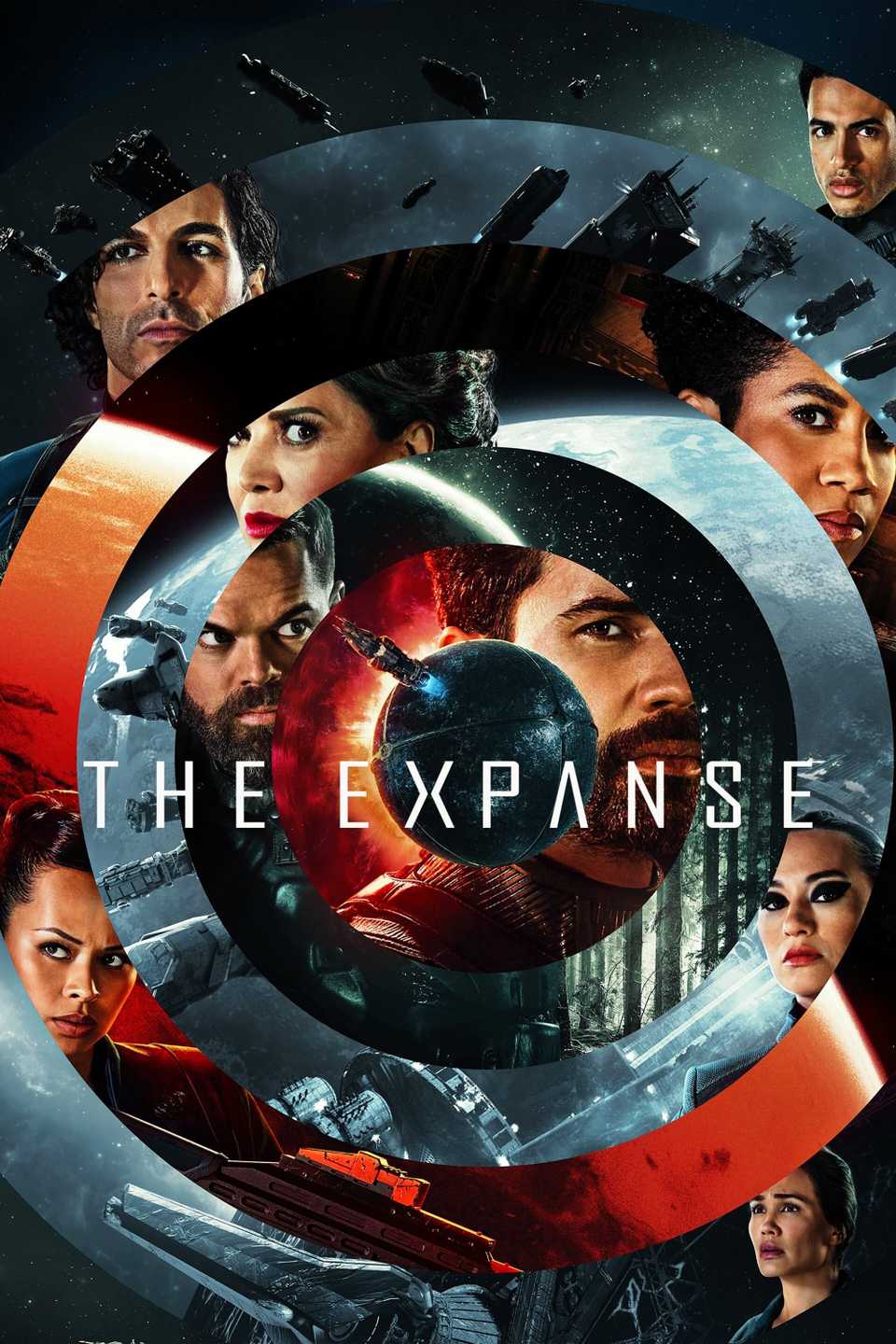
- Release Date
-
2015 – 2022-00-00
- Showrunner
-
Naren Shankar, Mark Fergus, Hawk Ostby
